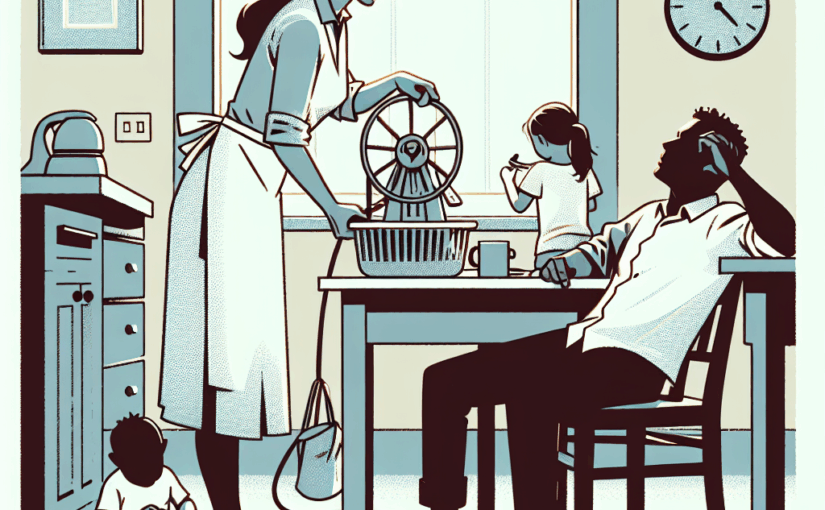Recognising Parental Burnout
Feeling exhausted, irritable, or disconnected from your children? You’re far from alone. Many parents are increasingly recognising symptoms of parental burnout, a condition marked by emotional exhaustion and a diminished sense of accomplishment in parenting roles. It’s a widespread phenomenon, particularly for those juggling multiple responsibilities. Understanding that you’re not the only one experiencing these feelings can be the first step towards regaining your energy and enthusiasm for parenting.
Parental burnout can manifest in various ways, including physical symptoms like fatigue and psychological effects such as anxiety and depression. Recognising these signs is crucial to addressing your well-being effectively. Many parents suffer in silence, but acknowledging the situation can lead to healthier coping mechanisms and much-needed support.
Signs of Parental Burnout
Identifying parental burnout is essential for seeking help and regaining balance in your life. Here are some common signs to look for:
1. Chronic Fatigue: A constant feeling of tiredness that doesn’t alleviate with rest can indicate burnout.
2. Mood Swings: Experiencing heightened irritability or frustration, especially with your children, is a significant warning sign.
3. Diminished Interest: Losing enthusiasm for activities you once enjoyed, including spending time with your kids, can reflect deeper emotional struggles.
4. Detachment: Feeling disconnected from your children and family life could suggest that you’re overwhelmed.
5. Physical Symptoms: Chronic headaches, stomach issues, or sleep disturbances are common among parents suffering from burnout.
By identifying these symptoms early, you can take proactive steps to alleviate stress and prevent a downward spiral. Consulting with a mental health professional can provide beneficial strategies tailored to your unique situation.
Strategies to Combat Parental Burnout
Addressing parental burnout involves a blend of self-care, community support, and practical strategies. Here’s how you can restore your well-being:
1. Prioritise Self-Care: Taking time for yourself isn’t selfish; it’s necessary. Allocate a few moments each day for activities that replenish your energy. This could include meditation, reading, or simply enjoying a warm bath.
2. Share the Load: Don’t hesitate to seek help. This could mean dividing responsibilities with your partner or relying on family and friends. Having a strong support network is vital in combating feelings of isolation.
3. Set Realistic Expectations: Perfectionism often leads to burnout. Accept that it’s okay not to have everything in order and that the occasional messy house or missed homework won’t detract from your role as a parent.
4. Focus on Quality Time: Engage in meaningful activities with your children rather than simply completing daily tasks. This could be as simple as a family walk, a game night, or cooking together. Quality interactions can transform your relationship and make parenting feel more rewarding.
5. Limit Screen Time: Reducing time spent on screens—both for you and your children—can foster better communication and connection, which are essential for a healthy family dynamic.
If you’re looking for more support, consider exploring resources like [Talk to Koko](https://www.talktokoko.com), where you can find tools dedicated to mental well-being for parents.
Seeking Professional Help
Recognising that you may need professional support is a significant step in addressing parental burnout. Speak to a therapist or counsellor who can provide coping strategies tailored to your situation. Groups focused on parental burnout might also help you connect with others who are experiencing similar challenges, fostering a sense of community and understanding.
Many parents benefit from discussing their feelings with peers who can provide empathy, shares strategies, and offer reassurance that they are not alone. Professional help can guide parents towards effective coping mechanisms, healthy family dynamics, and more profound self-insight, making it a valuable addition to your support system.
As you navigate your parenting journey, remember that feeling drained or overwhelmed is entirely normal. Acknowledging these feelings, seeking support, and implementing practical strategies can lead to renewal and joy in your parenting experience.
Taking proactive measures against parental burnout can rejuvenate your relationship with your children and restore your energy levels. Don’t hesitate to reach out for help when needed—whilst parenting is uncharted territory, support is just around the corner.
When you feel like reaching your breaking point, remind yourself that it’s okay to pause, reflect, and seek help. Start your journey back to joy in parenting one small step at a time.

